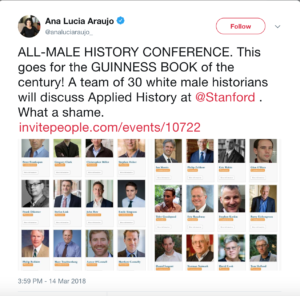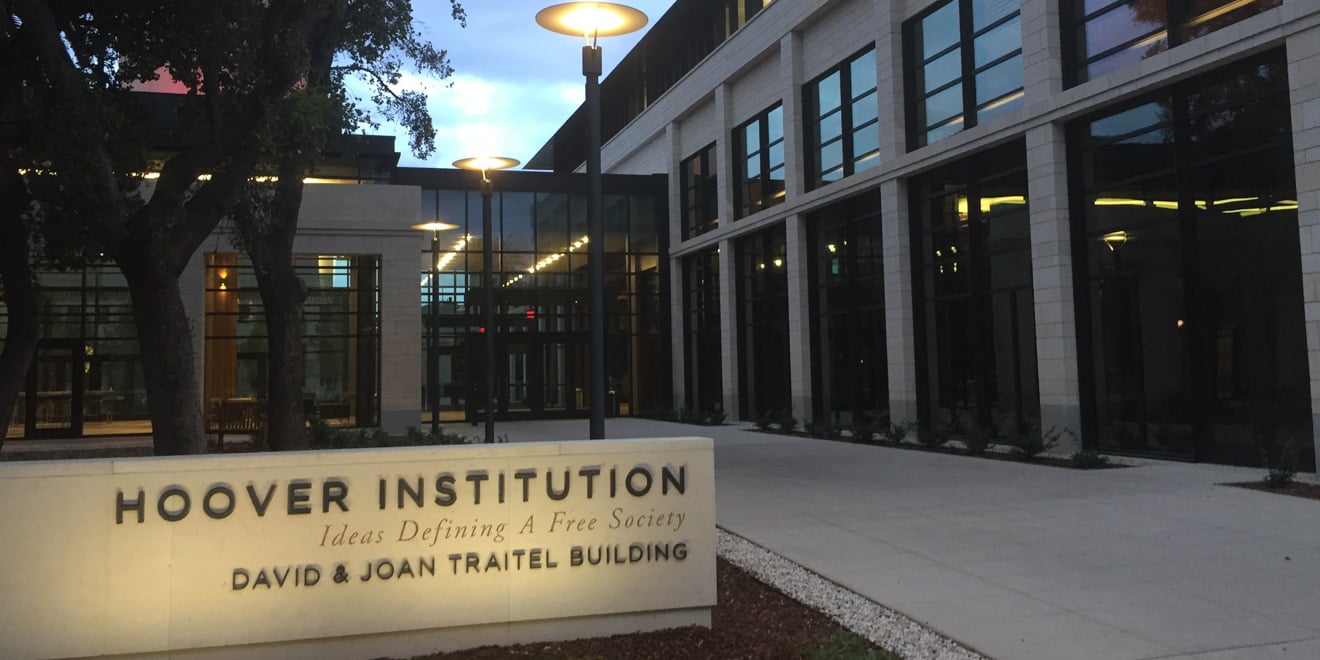30 white male historians made up the body of speakers at the Applied History conference at Stanford earlier this month, stirring controversy regarding the event’s lack of diversity.
The event, organized by Hoover Institution senior fellow Niall Ferguson, featured 12 sessions spanning a wide variety of topics, with titles such as “Is Trumpism Merely Populism revisited?” and “Same As It Ever Was: The History of Inequality and Mobility.”
On Wednesday, Howard University in Washington history professor Ana Lucia Araujo posted a tweet criticizing the conference, prompting public outcry against the event on social media.
“This goes for the GUINNESS BOOK of the century!” she wrote, adding a screenshot of the event’s roster as evidence. “What a shame.”

In an email statement to The Daily, Ferguson said that he regretted not inviting more women to speak at the event.
“I have no doubt that there are many talented female historians whom I should have invited,” he wrote. “I reproach myself for not knowing them and not having done more to get to know them.”
Ferguson reported that just four out of 19 individuals invited to present papers at the conference were women, and that they were unable to attend due to other commitments. Of those four, two were women of color. The presenters were invited in addition to the event speakers, not all of whom spoke on their own papers.
According to the event’s website, the only female speaker at the conference was Mary Sarotte, who chaired a session called “The History of the Future.” 20 out of the 87 people in attendance at the event were women, said University spokesperson Lisa Lapin.
“Everybody was keenly aware that it was too white and too male,” Ferguson said in an interview with The New York Times, citing that the problem was “explicitly discussed” prior to the event.
At the same time, he defended the conference in an email statement to The Daily, arguing that “much of the controversy on social media is based on a series of false assumptions about the intention of the event.”
Referring to the titles of the conference’s 12 sessions, several of which are phrased as questions, Ferguson said, “They are mainly questions about economics, politics, diplomacy, [and] war. As anyone who works in a modern history department will confirm, the majority of scholars who work in these sub-fields (which have been much depleted in recent decades) tend to be male.”
Stanford history professor and head of the department’s diversity committee Priya Satia contested this claim in an interview with The New York Times, arguing that while fields like science and technology tend to be male-dominated, history is not.
“Given how prevalent women are in the history department, you’d have to try really hard to come up with a roster of speakers that looks like that,” she said.
Ferguson said that since his move to Stanford just under two years ago, “only a small number” of history department members communicated with him personally, “much less to welcome [him].”
As of Thursday, the main website for the event has been taken down.
Ferguson has recently drawn attention for his leadership role in organizing the Cardinal Conversations speaker series, which is aimed at broadening the spectrum of political discourse at Stanford. The series has drawn widespread controversy on campus for its roster of speakers including social scientist Charles Murray, who faced campus protest for his appearance.
In his email, Ferguson reflected on the criticism of the conference.
“If any good has come of all this negative publicity, perhaps I shall now get to know [more female historians],” Ferguson wrote. “Or perhaps the result will instead be a boycott of future events I organize. We shall see.”
Contact Claire Wang at clwang32 ‘at’ stanford.edu.
